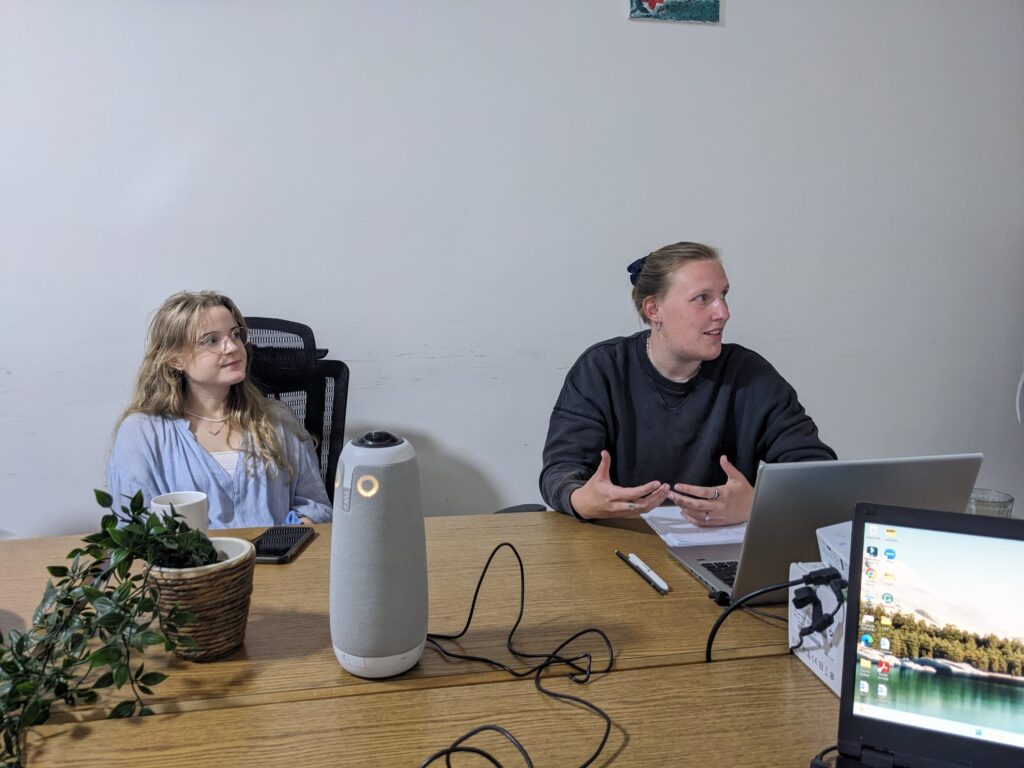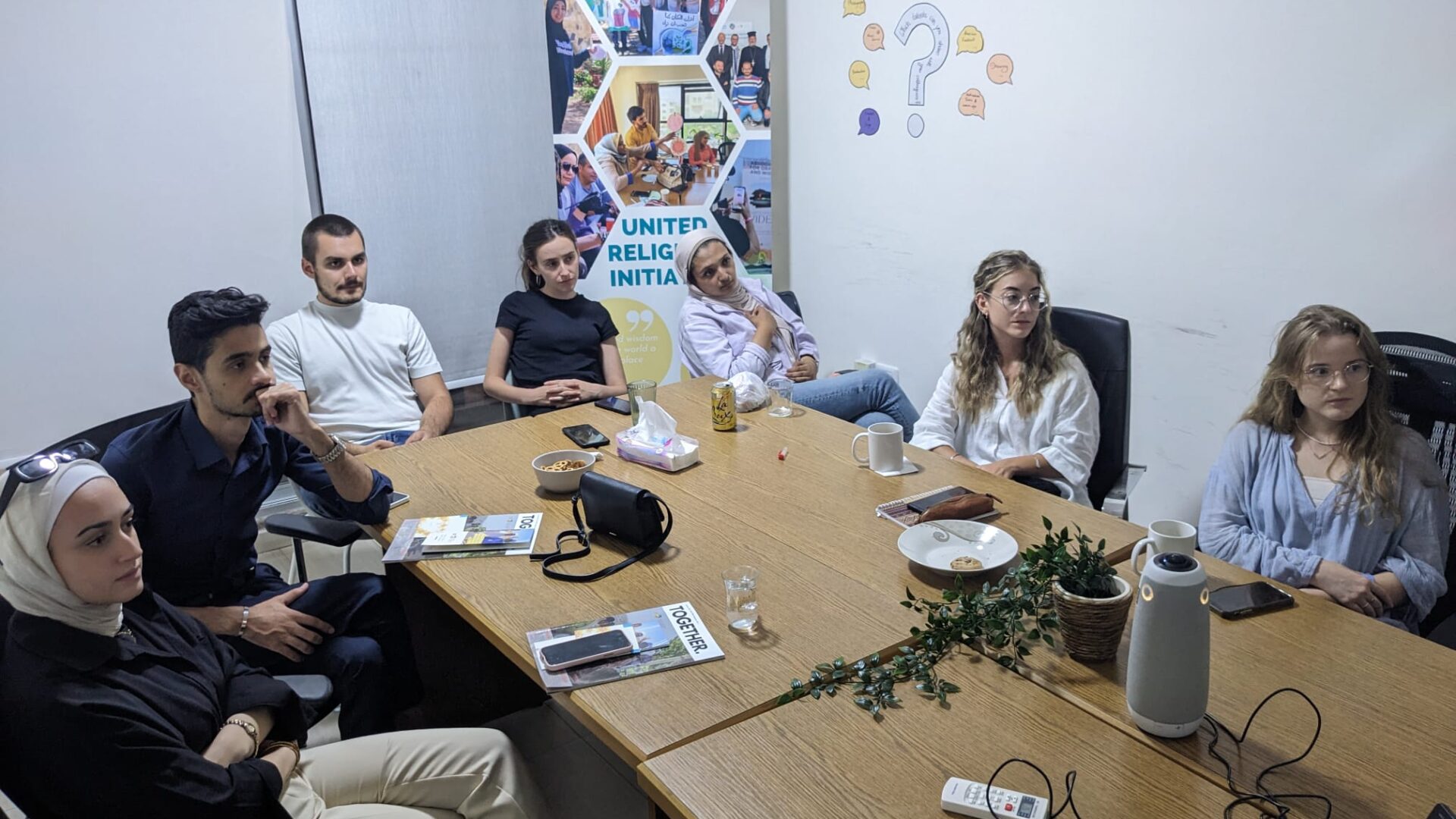September 2023 – Christian Life in Germany, Culture Cafe
Last Saturday, 24th of September, we hosted the first session of our Cultural Café series about religious life in a secular country (Germany). Henriette, a German volunteer at URI MENA, spoke about Christianity in Germany and her perspective about living in Germany as a Christian.
We started by learning about the basics of religious freedom in Germany, which is enshrined in the Basic Law. It guarantees freedom of religion for all, and the state takes a neutral and tolerant approach towards all religions. Whether people adopt a religion and join a religious community is a personal decision.
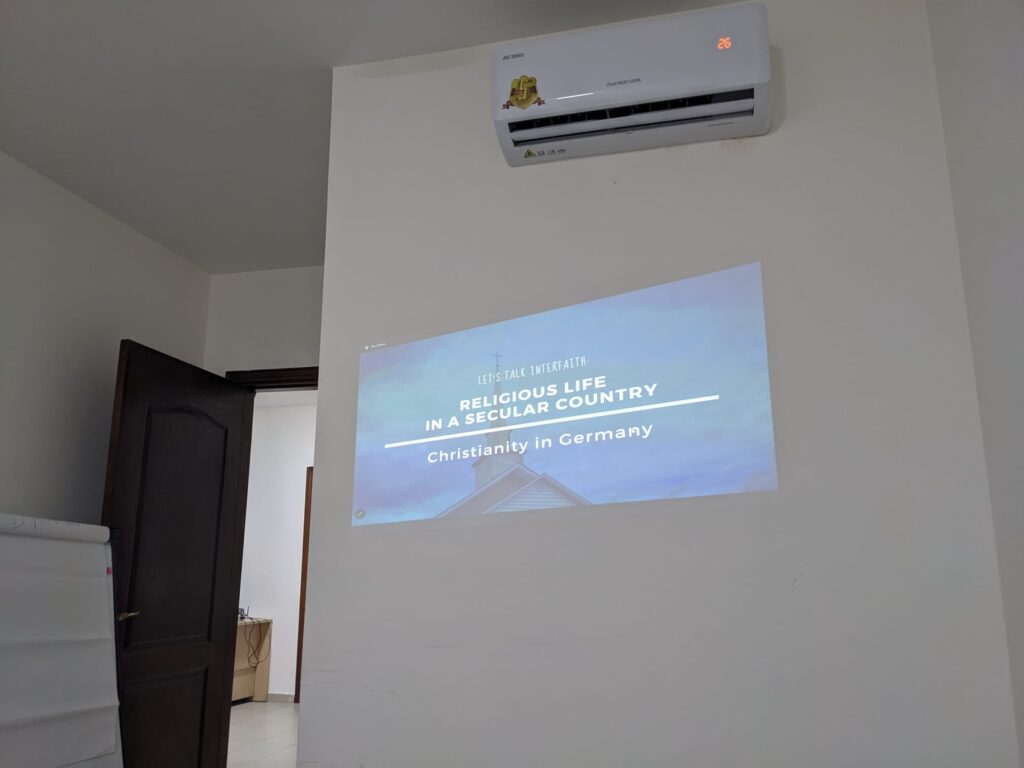
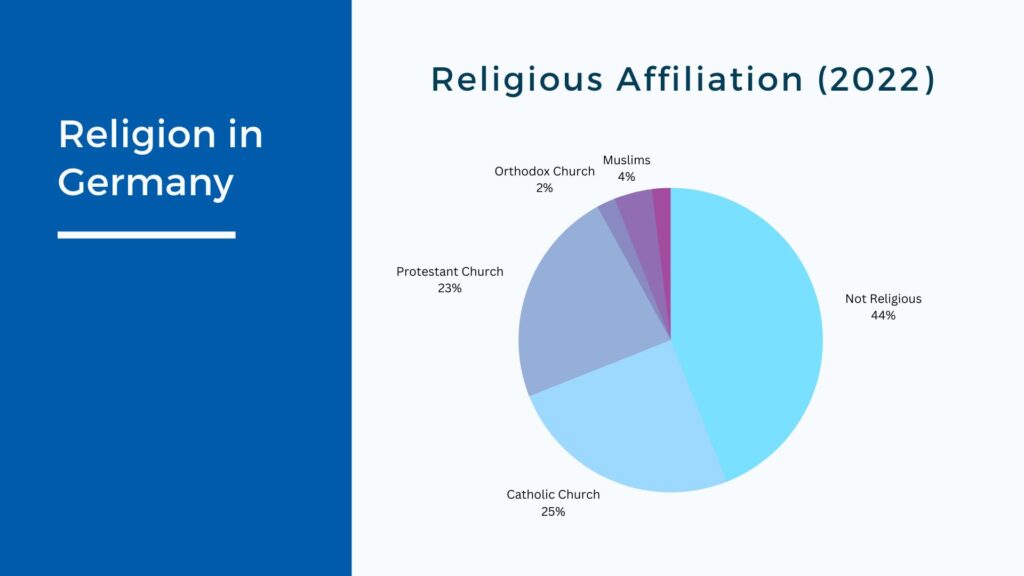
In Germany one of two people belong to one of the two major Christian churches: the Roman-Catholic Church and the Protestant Church. Muslims make up about 4 percent of the population, and 2 percent belong to the Eastern Orthodox Churches. Less than 2 percent belong to other religions, such as Judaism, Buddhism and Hinduism.
Slightly less than half of the German population describes itself as non-religious. The proportion of non-religious people is particularly high in the east of the country. Due to the attempts of secularization in the last century and especially because of the aggressively anti-church governments policies in the German Democratic Republic, the former communist state in the East, religious affiliation has declined sharply – to less the one quarter of the population.
For understanding the religious division, we took then a short look at the German history. Catholicism in Germany goes all the way back to the Roman Empire, which only included parts of the western Germany. We can see the country’s Catholic past in many imposing cathedrals (Cologne, Trier, Regensburg, Munich, Aachen).
A turning point in Germany’s religious history came in the 16th century: the Protestant Reformation. Martin Luther, a catholic priest, published 95 theses criticizing aspects of the Catholic Church and detailing what he saw as its abuse of power. Luther was excommunicated from the Catholic Church and went into hiding at Wartburg Castle, where he kept himself busy translating the Bible into German from Ancient Greek and Hebrew. This was the starting point of the Reformation movement and the Protestant Church. From the it diversified and spread across Europe.
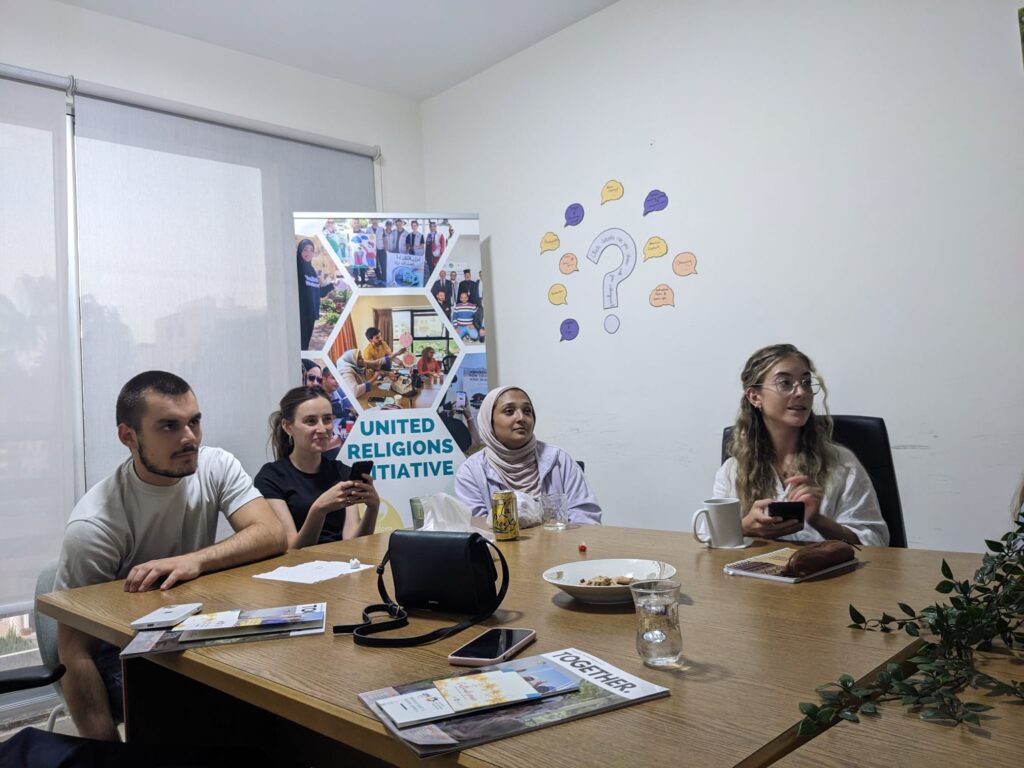
After looking into history, we approached the current situation of Christians in Germany and their presence in the whole society. These days, congregations in both confessions are dwindling. Some 300,000 Germans leave the church every year. Some reasons include the church tax and reports of sexual abuse that emerged over the last decade, stemming predominantly, but not exclusively, from the Catholic Church. In addition, less than 10% of Catholics and only 3% of Protestant go to church regularly.
Theoretically, there is a separation of church and state in Germany. But it doesn’t always seem like that. The Christian influence can be seen in many places in German society. Christian presence in daily life:
- Churches receives yearly payment from the state (in 2020: 570 million euros)
- Churches collect church tax of their members through the state finance department
- Public holidays: almost always based around the Christian calendar (Christmas, Easter, Pentecost, All Saint’s Day, Reformation Day)
- Closed businesses on Sunday – the Christian rest day during the week
- Churches owns much property, land, stocks, and even breweries
- Churches invests a great deal in charity work: Church runs schools, nurseries, hospitals
- Religious education in school: mainly catholic or protestant
At the end of the Culture Cafe we heard very personal answers from Christians from Germany about what for them personally constitutes Christian life in Germany. Their answers were very different and gave us a very special insight to understand what is important for them as Christians in Germany. For most of them the connection and exchange with other Christians, the Christian community, the fellowship, and being able to find new friends is central. Their relationship with God gives them new energy and a place to rest. Further, the Christian life shows them to celebrate life and how to live a conscious life following the Christian values. Their experienced the Churches as a place of acceptance and freedom of speech.
We are thankful for Henriette for giving us an insight in the Christian life in Germany and are looking forward to the next session, on the 30th of September, about Muslim life in Germany, hosted by Mariam.
